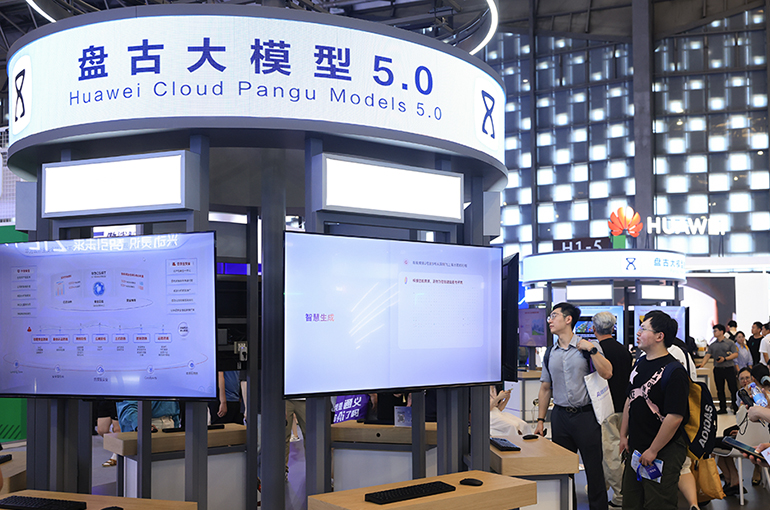 Huawei Refutes Plagiarism Accusations Against Pangu LLM
Huawei Refutes Plagiarism Accusations Against Pangu LLM(Yicai) July 7 -- Huawei Technologies' team responsible for developing Pangu Pro MoE has denied that the large language model under the Chinese tech giant's Pangu artificial intelligence model series committed plagiarism.
Pangu Pro MoE, an open-source LLM developed and trained on the company's Ascend full-stack AI software and hardware platform, referenced other open-source codes according to related standards, Huawei's Noah's Ark Lab said in a statement on July 5.
On June 30, Huawei open-sourced three AI products, including Pangu Pro MoE. Afterward, a research paper published by @HonestAGI on GitHub claimed that Pangu Pro MoE was suspected of plagiarizing Alibaba Group Holding's Qwen-2.5 14B. The research showed an extraordinarily high correlation between the two models, suggesting Pangu Pro MoE was developed by 'upcycling' rather than trained from scratch.
"The code implementation of some foundational components in Pangu Pro MoE referenced industry open-source practices, including portions of open-source code from other open-source LLMs," Noah's Ark Lab noted. "We strictly adhered to open-source license requirements and clearly marked copyright declarations of open-source code in the source code files.
"This is not only a common practice in the open-source community but also aligns with the collaborative spirit advocated by the industry," Noah's Ark Lab added.
This controversy has drawn significant attention to the integrity of China's LLM development, particularly regarding the distinction between legitimate open-source collaboration and potential intellectual property violations in the rapidly evolving AI landscape.
Editor: Futura Costaglione